A humanitarian crisis is unfolding in northern Ethiopia, driven by drought, crop failures and ongoing insecurity in the aftermath of a brutal war.
With local authorities warning that more than two million people are now at risk of starving to death, the BBC gained exclusive access to some of the worst-affected areas in Tigray province and analyzed satellite images to reveal the full scale of the emergency facing region now faces. .
July is a critical period for food security, when farmers need to plant crops to take advantage of seasonal rains.
The satellite images we identified show that reservoirs and the farmland they help irrigate have dried up because rains failed last year. They now need to be replenished by seasonal rains if farmers are to have any hope of a successful season later in the year.
The images below are of the Korir dam and reservoir, about 45 km (28 miles) north of the regional capital, Mekele.
A small lake with an artificial barrier, known as a microdam, is clearly visible in the first photograph, taken in June 2023. Below the dam there is fertile land irrigated by the reservoir.
Systems like this have managed to support more than 300 farmers who grow wheat, vegetables and sorghum – a cereal crop.
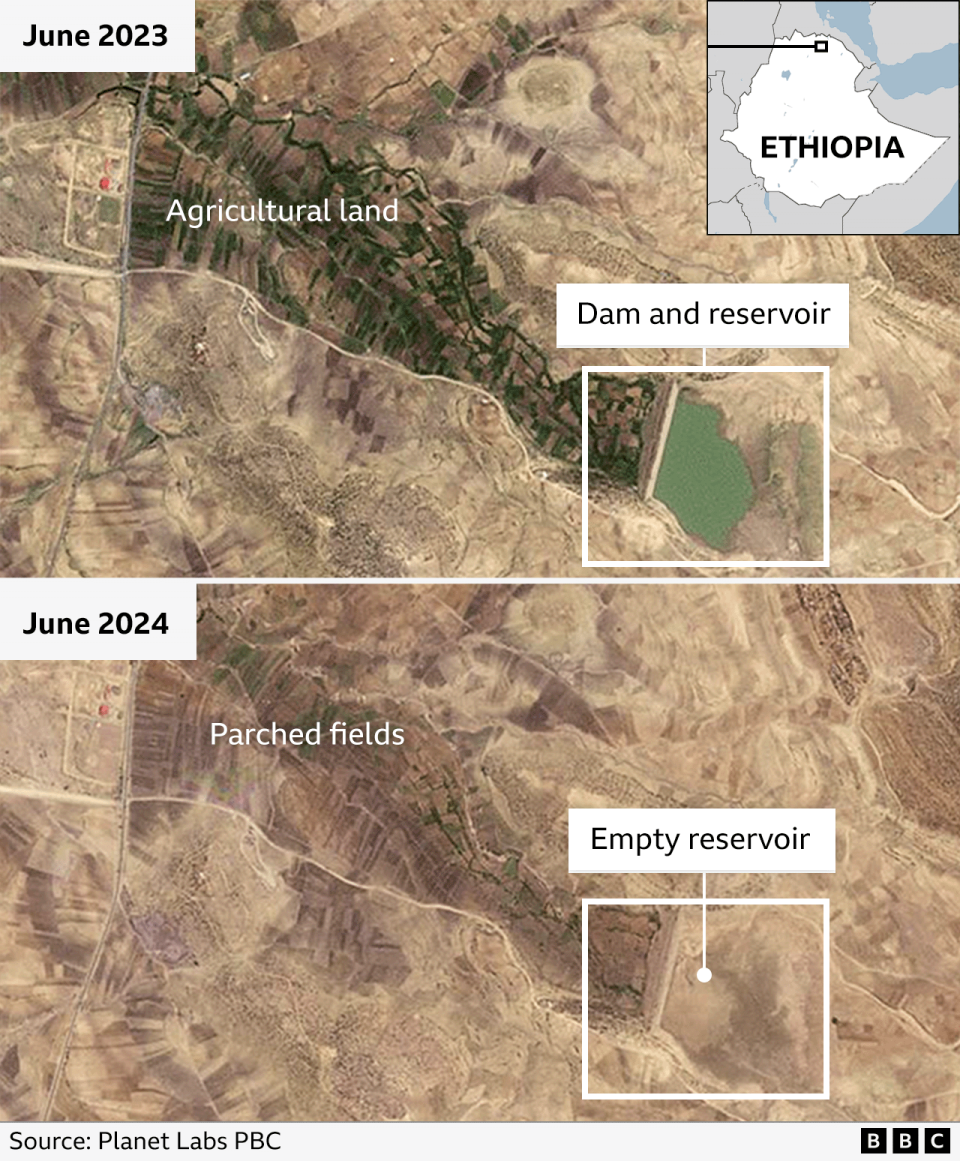
The bottom image shows the same area in June 2024, with the reservoir empty and fields parched.
Without adequate rainfall, the irrigation system cannot function and farmers cannot survive off the land.
“Even if our dam has no water, our land will not go anywhere,” says Demtsu Gebremedhin, who grew tomatoes, onions and sorghum.
“So we haven’t given up and hope to get back to farming.”
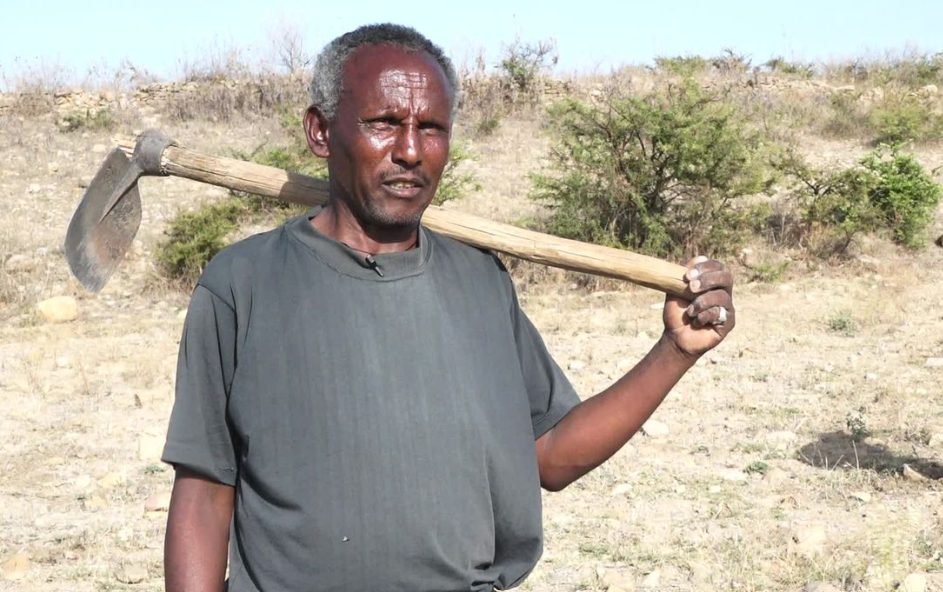

Food and security
Tigray’s population is estimated at between six and seven million.
Until the end of 2022, the region was involved in a bitter two-year war that pitted Tigray’s local forces against the federal government and its allies.
It is estimated that hundreds of thousands of people were killed in the conflict or died due to hunger and lack of healthcare.
Dozens of displacement camps have been created to provide refuge and humanitarian support.
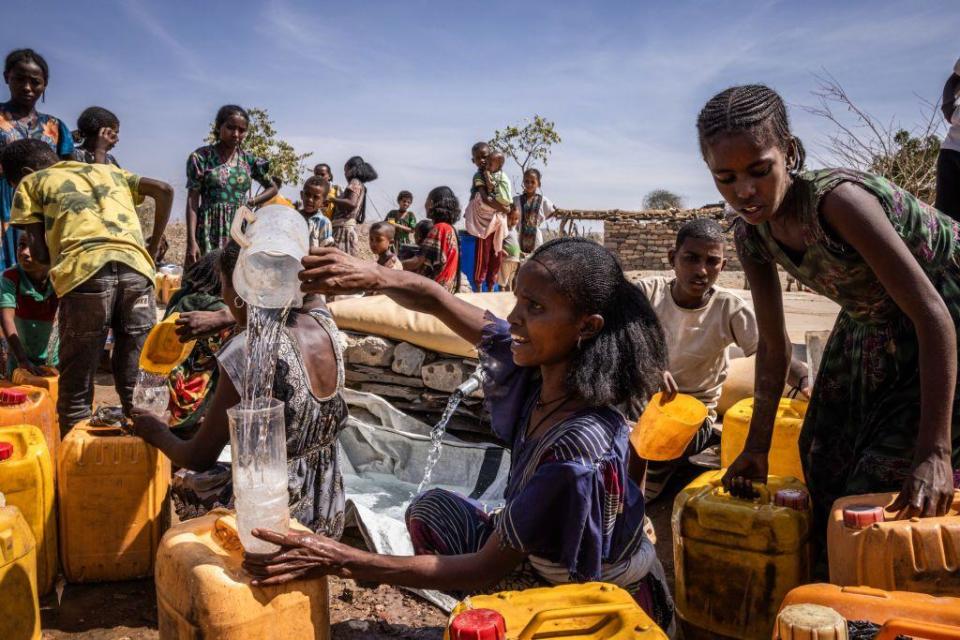

Now that the war is over, some have managed to return home – but most remain in camps, dependent on the food aid delivered to them, because the lack of rain means they have no crops to harvest and eat.
One of these fields is near the town of Shire, about 280 km (174 miles) by road west of Korir Dam. Created by UN agencies, it now offers shelter to more than 30,000 people.
The blue tents seen in this satellite image were provided by the International Organization for Migration (IOM) and the white ones by the United Nations Refugee Agency (UNHCR).


Tsibktey Teklay takes care of five of her children in the field. Her husband was killed in the war.
“We had animals. We used to harvest in winter,” she told the BBC in May. “In short, we had the best lifestyle. Now we are reduced to nothing.”
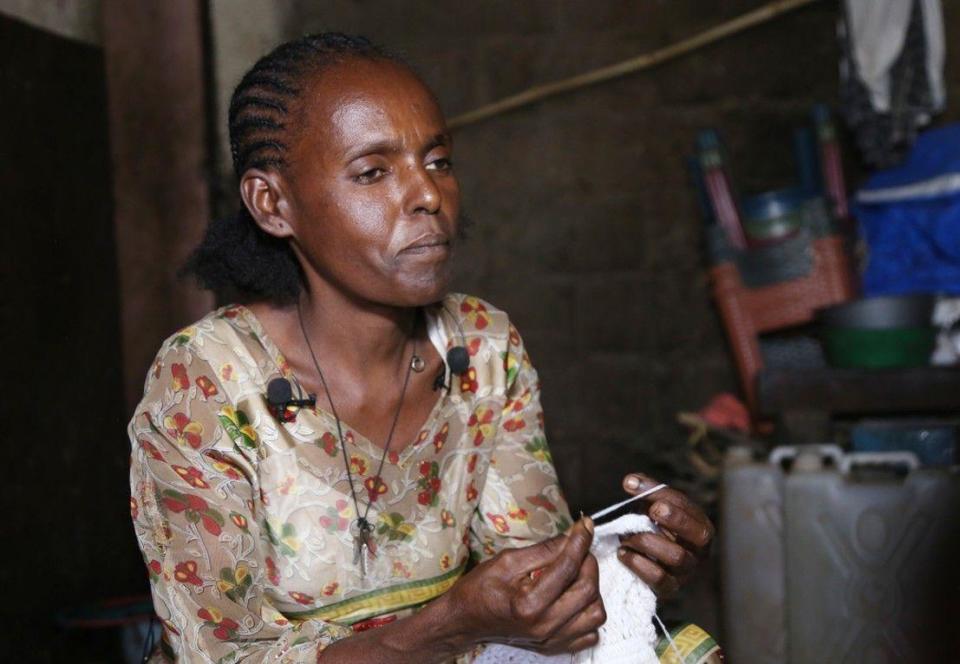

At the camp, she cooks and does manual labor to earn money, but some of her children have had to beg.
“I hope to at least get my land back. Food grown on our land is better than food aid,” she says.
“If we can return to our hometown, our children will be able to work or go to school.
“So I hope that after our miserable life here, this is the best future for them.”
Children facing malnutrition
The BBC spoke to doctors at a hospital in the town of Endabaguna, about 20km south of Shire, about their growing concerns.
“We have been treating an increasing number of children in recent months,” says the hospital’s medical director, Dr. Gebrekristos Gidey.
One woman – 20-year-old Abeba Yeshalem – gave birth prematurely due to malnutrition, he says.
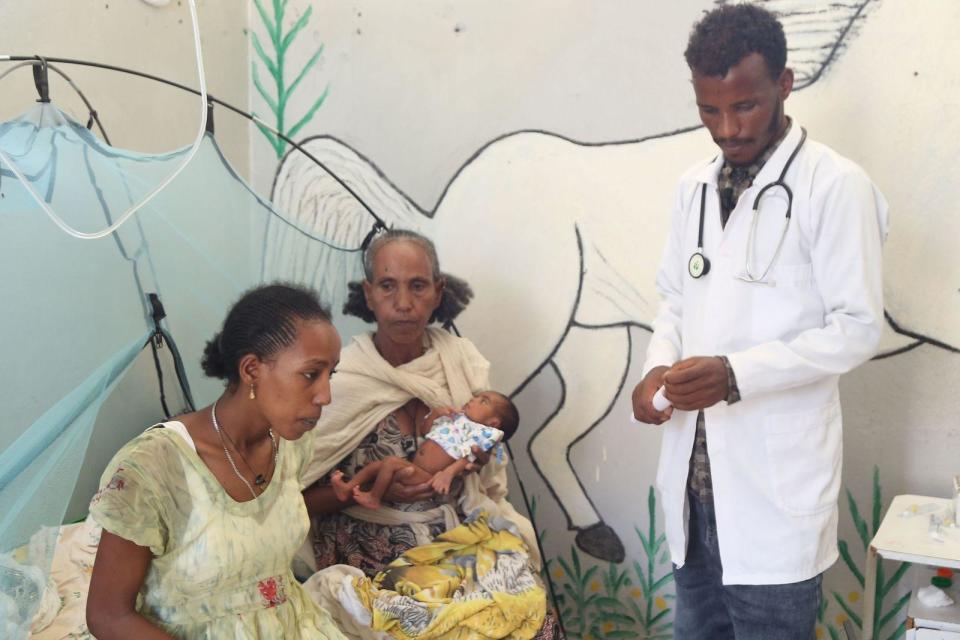

At the hospital, Abeba told us: “My husband went to study, leaving me alone and was unable to help me financially. I don’t have enough food to feed myself or the baby.”
The dozens of children undergoing treatment not only belong to families living in the camps, but also those in neighboring cities.
“We don’t have the resources to care for everyone in need,” says Dr. Gebrekristos.
Waiting for the rain
The region is facing the most critical period of the year, known as the “peak famine season”, according to Dr. Gebrehiwet Gebregzabher, head of the Disaster Risk Management Commission in Tigray.
It’s a time when food supplies are traditionally scarce – and crops must be planted to be ready for October’s harvest.
“There are 2.1 million people at risk of starvation,” he told the BBC, “with a further 2.4 million relying on an uncertain aid supply.”
Data obtained from the Ethiopian government’s meteorological agency shows the consequences of last year’s poor rains.
The northern regions of Tigray and neighboring Afar have suffered from drought.
In southern Ethiopia, heavy rains caused flooding, damaging crops and livestock.
Rainfall in January and February this year was also below normal across much of Tigray, although it improved in some areas in March.
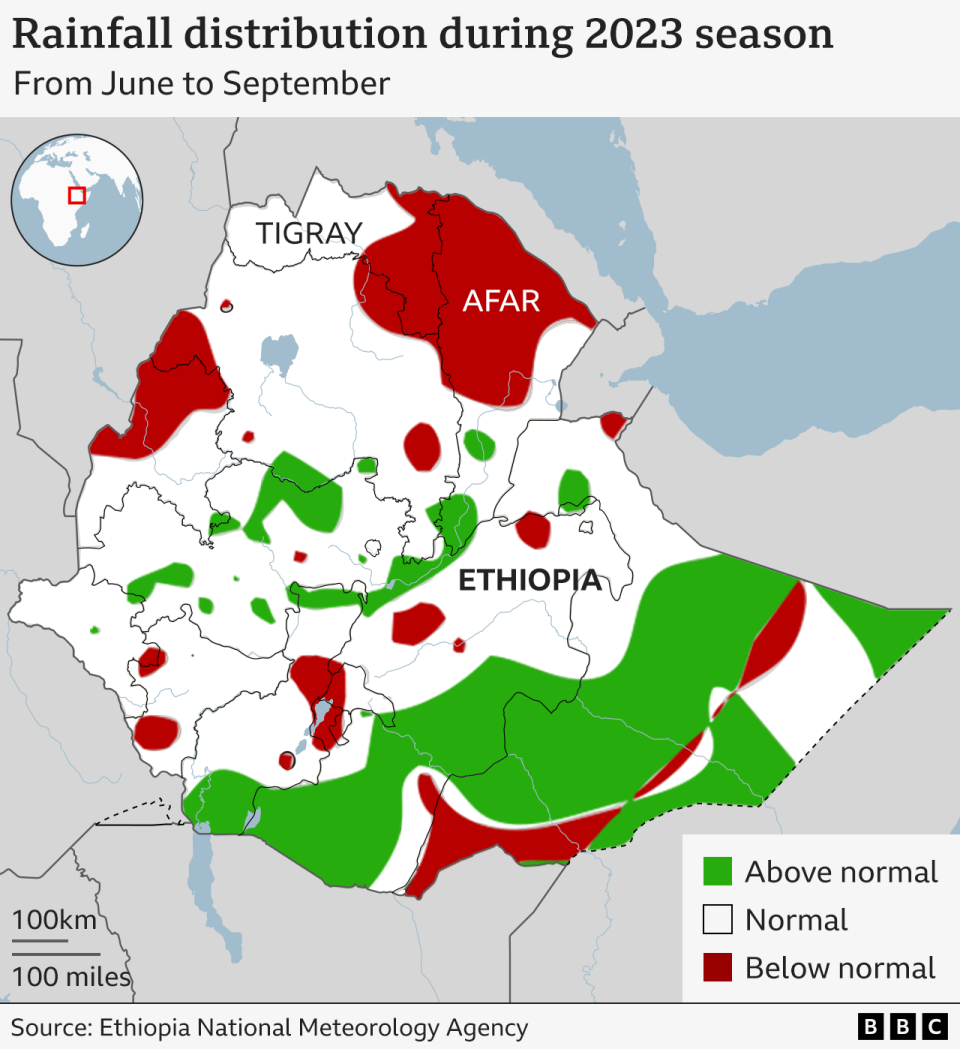

Political tensions
Hunger “comes in the darkness,” warns Professor Alex de Waal, executive director of the advocacy group the World Peace Foundation at Tufts University. He says little attention is being paid to the crisis.
“Hunger is man-made, so the men who cause it like to hide the evidence and their role,” he says.
He says the current situation in Tigray has echoes of the catastrophic famine of 1984, in which around a million people starved to death.
“In 1984, the Ethiopian government wanted the world to believe that its revolution heralded a bright new era of prosperity, and foreign donors refused to believe famine warnings until they saw images of dying children on BBC news.”
Aid agencies have mapped the scale of the crisis Ethiopia faces based on a range of factors, including poor rains, ongoing insecurity and lack of access to aid distribution.
The Famine Early Warning Systems Network (Fews Net) describes parts of Tigray, along with neighboring Afar and Amhara, as facing an emergency
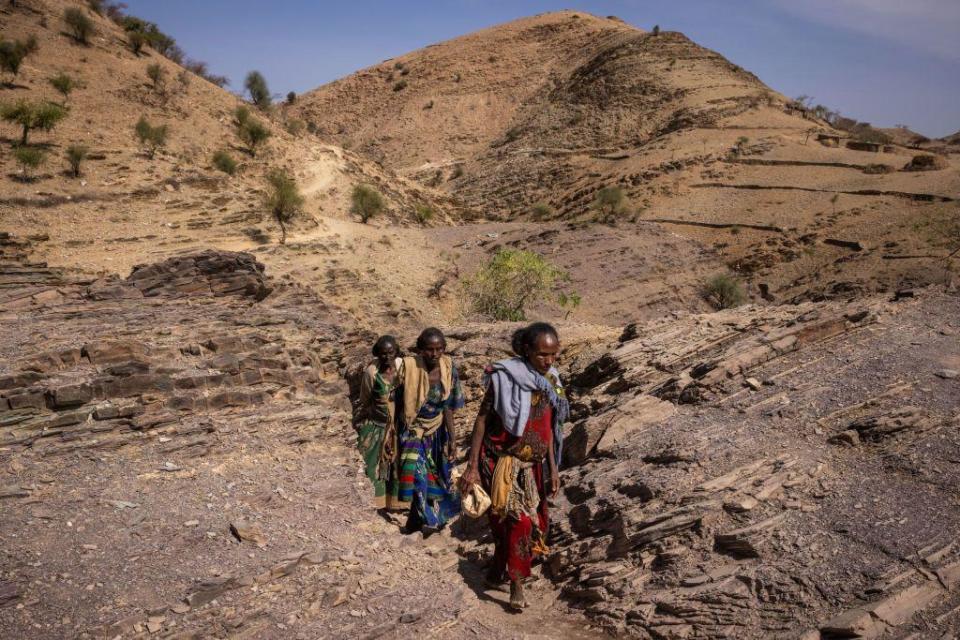

The federal government in the Ethiopian capital, Addis Ababa, disputes these warnings of critical food shortages.
Shiferaw Teklemariam, head of Ethiopia’s National Disaster Risk Management Commission, told the BBC that based on official assessments, “there are no imminent dangers of hunger and starvation in Tigray…[or] elsewhere in Ethiopia.”
He added that the authorities are “doing their best” to face the challenges facing the country and that the “most needy beneficiaries” will continue to be prioritized.
Relations between the Ethiopian government and aid agencies have been strained in recent years amid UN allegations that food aid was being prevented from reaching Tigray during the local conflict.
In 2021, the federal government denied reports of famine in Tigray and expelled seven senior UN officials, accusing them of “meddling in the country’s internal affairs”.
Then, in June last year, the UN World Food Program and the US Agency for International Development (USAID) suspended all food aid to Ethiopia, saying they discovered evidence that government and military authorities were stealing humanitarian supplies.
Deliveries only resumed in November.
There have also been public disputes in Ethiopia over the seriousness of the situation.
In February, after the Ethiopian Ombudsman reported nearly 400 deaths from famine in the country, including in Tigray, Prime Minister Abiy Ahmed said: “There are no people dying from famine in Ethiopia.”
In response to these political tensions, Alex de Waal says that aid agencies that are “strapped for cash and averse to controversy” have been slow to respond to the current crisis.
A USAID spokesperson told the BBC that they “continue to call on the Ethiopian government and other donors to increase funding for the humanitarian needs of the most vulnerable.”
The United Nations Office for the Coordination of Humanitarian Affairs (UNOCHA) states that currently available funding is “insufficient to meet the extensive humanitarian needs”, but available resources are channeled “towards the most urgent and life-saving response”.
Additional reporting by Daniele Palumbo and Kumar Malhotra




































